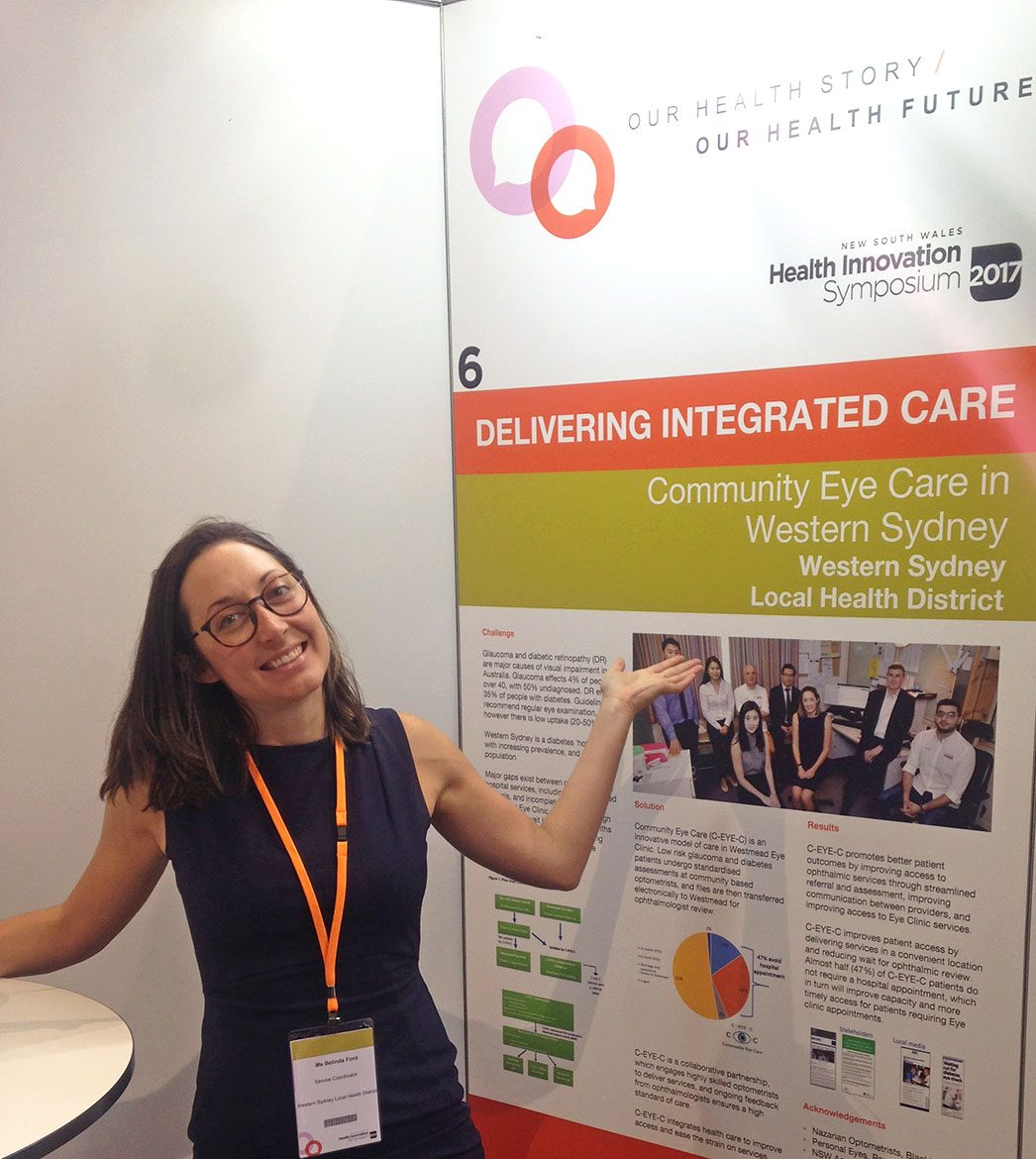
Belinda Ford: improving eye health and access to care
Meet Belinda Ford, PhD candidate and research assistant working in injury prevention.
How long have you been working at The George Institute?
I started at the George Institute as a part-time Phd Student in April 2017, and recently changed to full-time study after being awarded an Australian Government Research Training Program Scholarship through UNSW.
What attracted you to working here?
Persistent emails from a potential PhD supervisor!?... haha
The George Institute’s mission to improve health for millions of people around the world, means that researchers who work here think globally and aim for biggest impact. For me this was attractive, not only for my passion to improve health but because of the opportunities and connections it would open up for my research career. Having access to a global pool of health research experts is a great environment for an early career researcher to learn and develop.
How would you summarise the research you do and the difference it will make to healthcare?
The research I am working on is looking at ways to improve efficiency of the health system and delivery of services for eye disease, so that more people have access to appropriate care when and where they need it.
Recently a project you were involved in won a NSW Health Innovation Award. How did this project come about, and why is it so important?
The Community Eye Care (C-EYE-C) project is an innovative model of care for chronic eye diseases. The model of care is based on evidence based collaborative care models from the UK which had shown improved service delivery and access for patients.
The C-EYE-C model was piloted in Western Sydney in 2017, where I am involved in the implementation and evaluation. C-EYE-C utilises existing skills of local optometrists to assess patients who would normally have to wait to be seen in hospital. We have shown that around half of the patients did not need to attend the hospital for follow up, which in turn frees up ophthalmologists sessions at the hospital for patients with greater need. Working with the NSW Agency for Clinical Innovation, this pilot will inform the statewide scalability of the model to become a standard way to deliver care.
What are your career plans after your PhD?
Ideally I would have a ‘hybrid’ role of academia and service delivery roles which would facilitate the translation of research into practice. I would like to continue to work on research to improve the health system, by using evidence base and data to inform service improvement, and overall have impact on improving health equity and health outcomes.
What motivates you most in your work?
In Australia, we are lucky to have one of the best health care systems in the world, but we still see major inequalities of health outcomes and access. I’m motivated by the idea that we can create a better system that is easier to navigate and uses resources more efficiently, so that more people can access services and the benefit will be improved health.
To explain to people what I do I say…
I’m doing a PhD which is looking at ways to make eye care services more efficient and other interventions to improve eye health.
My biggest achievement so far is…
Having worked in research roles for a long time, my biggest achievement has been finally taking the plunge into a studying a PhD and being awarded an Australian Government Research Training Program Scholarship through UNSW. I know the PhD will be a huge (and gruelling) challenge, but Im excited for the opportunities it will bring and the skills that I will develop.

